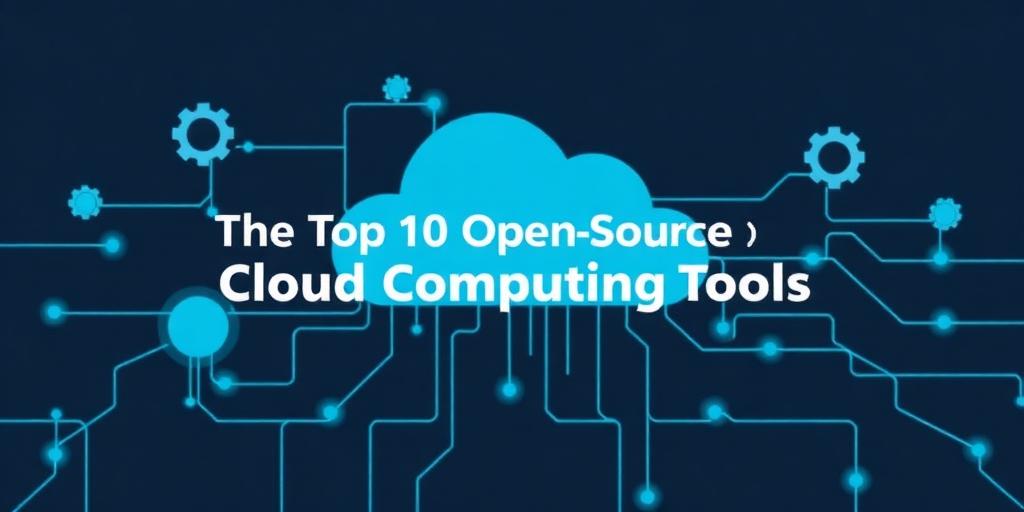The Top 10 Open-Source Cloud Computing Tools
The landscape of cloud computing continues to evolve rapidly, with open-source solutions playing an increasingly pivotal role. Organizations seeking flexibility, cost efficiency, and freedom from vendor lock-in are consistently turning to open-source alternatives for building, managing, and scaling their cloud infrastructures. This authoritative guide delves into the top 10 open-source cloud computing tools that are defining modern cloud architectures.
What Defines Open-Source Cloud Computing?
Open-source cloud computing refers to cloud platforms and services built using software with publicly accessible source code. This transparency fosters innovation, allows for community-driven development, and provides users with the ability to inspect, modify, and distribute the software. The inherent advantages include enhanced security through community audits, greater adaptability to specific enterprise needs, and significant cost savings by eliminating proprietary licensing fees.
The Top 10 Open-Source Cloud Computing Tools
1. OpenStack: The Comprehensive Cloud Infrastructure
OpenStack stands as a cornerstone of open-source cloud infrastructure, providing a suite of services for building and managing private and public clouds. It delivers Infrastructure-as-a-Service (IaaS) functionality, enabling users to provision compute, storage, and networking resources. Its modular architecture and extensive API support make it highly adaptable for large-scale deployments, cementing its position among the best open-source cloud platforms.
2. Kubernetes: Orchestrating Containerized Applications
Developed by Google, Kubernetes has become the de facto standard for container orchestration. It automates the deployment, scaling, and management of containerized applications, offering unparalleled portability and efficiency across various cloud environments. For any enterprise leveraging microservices, Kubernetes is an indispensable component of their cloud strategy.
3. Cloud Foundry: Streamlining Application Development
Cloud Foundry is an open-source Platform-as-a-Service (PaaS) that significantly simplifies the deployment and scaling of applications. It supports multiple programming languages and frameworks, abstracting away the underlying infrastructure complexities. This allows developers to focus on coding, making it a powerful tool for accelerating application delivery in a cloud-native world.
4. Apache CloudStack: A Robust IaaS Alternative
Similar to OpenStack, Apache CloudStack is another powerful open-source IaaS platform designed for building highly scalable private, public, and hybrid clouds. Known for its simplicity, ease of deployment, and robust API, CloudStack provides comprehensive cloud management capabilities, making it a strong contender for those seeking reliable free cloud infrastructure tools.
5. Ceph: Distributed Storage for the Cloud
Ceph offers a unified, distributed storage system designed for high performance, reliability, and scalability. It provides object, block, and file storage interfaces from a single cluster, making it ideal for cloud environments where diverse storage needs are common. Its self-healing and self-managing capabilities reduce administrative overhead, ensuring persistent data availability.
6. OpenNebula: Orchestrating Virtualized Data Centers and Hybrid Clouds
OpenNebula is a powerful open-source cloud management platform that enables the deployment and management of virtualized services. It excels at provisioning and managing virtual machines, containers, and serverless functions across on-premise infrastructure and external cloud providers, making it a prime example of effective cloud orchestration open-source solutions.
7. KVM (Kernel-based Virtual Machine): The Foundation of Virtualization
KVM is a full virtualization solution for Linux on x86 hardware containing virtualization extensions. It allows a Linux kernel to function as a hypervisor, supporting multiple virtual machines running unmodified Linux or Windows images. As a foundational technology, KVM is integral to many open-source IaaS platforms, providing the underlying virtualization layer for cost-effective cloud tools.
8. Docker: The Engine of Containerization
While often used in conjunction with Kubernetes, Docker revolutionized software deployment by popularizing containerization. It provides a standardized way to package applications and their dependencies into lightweight, portable containers. Docker containers ensure consistency across different environments, from development to production, which is crucial for modern cloud deployments.
9. Prometheus: Modern Monitoring and Alerting
Prometheus is an open-source monitoring system with a powerful data model and a flexible query language (PromQL). Designed for reliability and scalability, it collects metrics from targets by scraping HTTP endpoints and provides robust alerting capabilities. It has become a standard for monitoring dynamic, containerized environments in the cloud.
10. Grafana: Visualizing Cloud Metrics
Grafana is an open-source analytics and interactive visualization web application. It connects with various data sources, including Prometheus, to create powerful, customizable dashboards. For operational teams, Grafana provides the critical insights needed to understand system performance, troubleshoot issues, and optimize resource utilization within cloud environments.
Why Open Source is Crucial for Cloud Computing
The embrace of open-source tools in cloud computing is driven by several compelling factors. Beyond cost savings, open source offers unparalleled control and transparency, allowing organizations to audit, customize, and integrate solutions without proprietary restrictions. It fosters a vibrant community of developers and users, leading to continuous innovation and robust support networks. Furthermore, open-source solutions mitigate vendor lock-in, providing the flexibility to adapt and evolve cloud strategies as business needs change.
Conclusion
The selection of open-source cloud computing tools available today provides enterprises with powerful, flexible, and cost-effective alternatives to proprietary solutions. From foundational IaaS platforms like OpenStack and Apache CloudStack to crucial container orchestration with Kubernetes and essential monitoring with Prometheus and Grafana, these tools empower organizations to build resilient, scalable, and innovative cloud infrastructures. Leveraging these open-source assets is not just a trend but a strategic imperative for future-proof cloud deployments.









